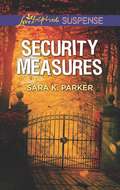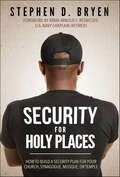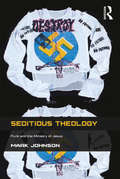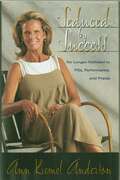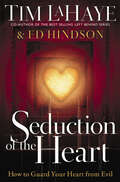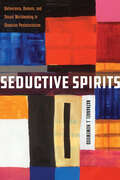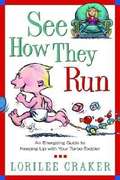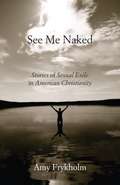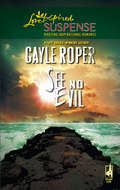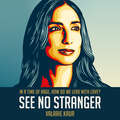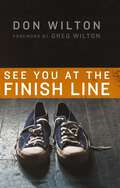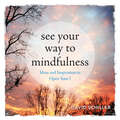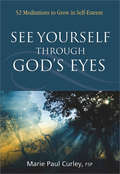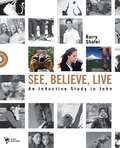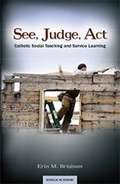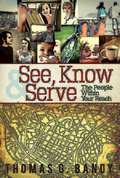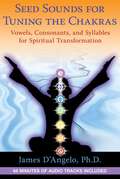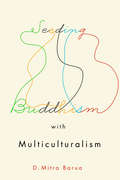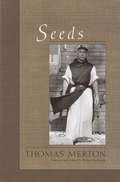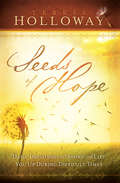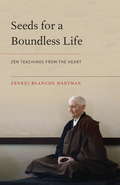- Table View
- List View
Securitized Citizens: Canadian Muslims’ Experiences of Race Relations and Identity Formation Post–9/11
by Baljit NagraUninformed and reactionary responses in the years following the events of 9/11 and the ongoing ‘War on Terror’ have greatly affected ideas of citizenship and national belonging. In Securitized Citizens, Baljit Nagra, develops a new critical analysis of the ideas dominant groups and institutions try to impose on young Canadian Muslims and how in turn they contest and reconceptualize these ideas. Nagra conducted fifty in-depth interviews with young Muslim adults in Vancouver and Toronto and her analysis reveals how this group experienced national belonging and exclusion in light of the Muslim ‘other’, how they reconsidered their cultural and religious identity, and what their experiences tell us about contemporary Canadian citizenship. The rich and lively interviews in Securitized Citizens successfully capture the experiences and feelings of well-educated, second-generation, and young Canadian Muslims. Nagra acutely explores how racial discourses in a post–9/11 world have affected questions of race relations, religious identity, nationalism, white privilege, and multiculturalism.
Security Breach
by Margaret DaleyINTRUDER AT THE WHITE HOUSE When White House tour director Selena Barrow is attacked in her office, the Capitol K-9 Unit goes on high alert. Selena's cousin is a person of interest in a congressman's shooting, and Selena has been collecting evidence to exonerate her. Could this be the break they're looking for? Officer Nicholas Cole and his dog, Max, step in to safeguard Selena-and to keep an eye on the evidence. As the attacks escalate, Selena finds it increasingly difficult to keep her distance from her handsome protector. But with an unknown enemy watching Selena's every move, Nicholas will become her confidant...and her lifeline. Capitol K-9 Unit: These lawmen solve the toughest cases with the help of their brave canine partners.
Security Detail
by Lisa PhillipsGUARDING THE FIRST DAUGHTER Stopping to pick up a file late at night, former president's daughter Kayla Harris discovers her law office has been ransacked-and the culprit is still there. But undercover Secret Service agent Conner Thorne comes to her rescue, and he knows exactly who is after her...just not why. Conner and Kayla go way back to their time in the White House when she was the rebellious first daughter and he was the rookie who saved her neck. Now Conner will put his life on the line again to keep Kayla away from the mobster he's investigating. And it's about much more than his job, because this time the woman he's sworn to protect is also the woman who's claimed his heart.
Security Measures (Mills And Boon Love Inspired Suspense Ser.)
by Sara K. ParkerA killer lies in wait… And now she’s in dangerTo halt a killing spree, bodyguard Triss Everett tightens security at the senior community where she volunteers—and makes herself a target. Her coworker, widower Hunter Knox, won’t let the woman he cares about more than he should become the next victim. But working together to find the murderer in their midst is the most challenging job he’s ever taken on—and the most dangerous.
Security for Holy Places: How to Build a Security Plan for Your Church, Synagogue, Mosque, or Temple
by Stephen D. BryenSecurity for Holy Places is the first comprehensive security guide for religious associations and organizations.While focused on houses of worship (and schools and centers connected to them), the guide also provides important information on securing religious summer camps and its guidance can be used for any faith-based organization, senior center, day care, or school.The book includes chapters on:overall threat types of weapons used by intruders perimeter and inside securitywhere to get professional help how to build a security planwhat to know when hiring guardsarmed versus unarmed guards & volunteersgun lawsmental health issueshow to use volunteers effectively to strengthen security information on technology that can strengthen the protection of holy places and their immediate surroundingssecurity for day and overnight campsguidance on how to organize security committees to strengthen securitychecklists for congregations and camps to use immediately
Seditious Theology: Punk and the Ministry of Jesus
by Mark JohnsonSeditious Theology explores the much analysed British punk movement of the 1970s from a theological perspective. Imaginatively engaging with subjects such as subversion, deconstruction, confrontation and sedition, this book highlights the stark contrasts between the punk genre and the ministry of Jesus while revealing surprising similarities and, in so doing, demonstrates how we may look at both subjects in fresh and unusual ways. Johnson looks at both punk and Jesus and their challenges to symbols, gestures of revolt, constructive use of conflict and the shattering of relational norms. He then points to the seditious pattern in Jesus' life and the way it can be discerned in some recent trends in theology. The imaginative images that he creates provide a challenging image of Jesus and of those who have relooked radically in recent years at what being a ’seditious’ follower of Christ means for the church. Introducing both a new partner for theological conversation and a fresh way of how to go about the task, this book presents a powerful approach to exploring the life of Christ and a new way of engaging with both recent theological trends and the more challenging expressions of popular culture.
Seduced by Success: No Longer Addicted to Pills, Performance and Praise
by Ann K AndersonShe won our hearts when she told us she was out to change the world. But Ann Kiemel Anderson discovered that success can be addictive, and soon she found that the world had changed her. Ann's first book in five years, Seduced By Success chronicles two major battles in her life: combating an addiction to the praise of others and overcoming an addiction to pain medication for a chronic illness. Drug-free for the last two years, Ann now shares heart-to-heart with her readers, saying, "I no longer want power and glory. God has given me a second chance to be used by Him. With quiet joy, I prepare to write something beautiful for God."
Seduction of the Heart: How to Guard Your Heart From Evil
by Ed Hindson Tim LaHayeChristians are engaged in the ultimate battle-the battle for the heart. The overwhelming influences of the media, materialism, and selfish ambition threaten to decay even the most tender of hearts. While the world screams to the contrary, every Christian must fight to maintain a clear conscience and discover what it really means to have the heart of God. On the heels of his New York Times bestseller Mind Siege, Tim LaHaye, with Ed Hindson, equip readers with armor to guard their hearts and draw nearer to God.Some chapter titles include:The Battle for the HeartThe Ultimate DeceptionThe Erosion of TrustA Prescription for the HeartFinding God's Heart
Seductive Spirits: Deliverance, Demons, and Sexual Worldmaking in Ghanaian Pentecostalism (Spiritual Phenomena)
by Nathanael HomewoodPentecostalism, Africa's fastest-growing form of Christianity, has long been preoccupied with the business of banishing demons from human bodies. Among Ghanaian Pentecostals, deliverance is primary among the embodied, experiential gifts—a loud, messy, and noisy experience that ends only when the possessed body falls to the ground silent and docile, the evil spirits rendered powerless in the face of the holy spirit-wielding-prophets. And nowhere is Ghanaian Pentecostal obsession with demons more pronounced than with sexual demons. In this book, Nathanael Homewood examines the frequent and varied experiences of spirit possession and sex with demons that constitute a vital part of Pentecostal deliverance ministries, offering insight into these practices assembled from long-term ethnographic engagement with four churches in Accra, the capital of Ghana. Relying on the uniqueness of the Pentecostal sensorium, this book unravels how spirits and sexuality intimately combine to expand the definition of the body beyond its fleshy boundaries. Demons are a knowledge regime, one that shapes how Pentecostals think about, engage with, and construct the cosmos. Deliverance Pentecostals reiterate and tarry with the demonic, especially sexually, as a realm of invention whereby alternative ways of being, sensing, and having sex are dreamed, practiced, and performed. Ultimately, Homewood argues for a distinction between colonial demonization and decolonial demons, charting another path to understanding being, the body, and sexualities.
See How They Run: An Energizing Guide to Keeping up with your Turbo-Toddler
by Lorilee CrakerEqual Parts Saintly Cherub and Demanding Emperor– Who Is This Child Formerly Known As Your Baby? Faster than a speeding bullet…Is it Superman? Nope, just your high-energy toddler, keeping life interesting–and mom on the run! Once, you dreamed of the day your precious baby would walk and talk. Now, you are constantly dragging your child out of the dog’s dish, making up answers to unanswerable questions (“Why, Mom, why?”), and engaging in power struggles with the world’s most adorable 25-pound dictator. Do other mothers of toddlers have days like this? You bet your sweet potty chair they do! Here are veteran moms’ stories and from-the-trenches advice on what works when dealing with the often challenging, always entertaining one- and two-year-old crowd, including: • What to do when your tot glues himself to your leg for no apparent reason (other than to yell) • Toys to boost your toddler’s brilliance–including freebies she’ll love most of all • Taking the “toil” out of toilet training (itisrocket science, no matter what your mother-in-law says) • Tantrum-tamers you can use from the mall to your mother’s house • Getting your toddler to eat more orange and green (gummy worms don’t count) • Ping pong prayers and other ways to connect Junior to God Here at last is the help you’ve been longing for: a hilarious but practical bimonthly guide to surviving, enjoying–and laughing your way through–the exhausting, crazy-busy, glorious toddler years.
See Me Naked: Stories of Sexual Exile in American Christianity
by Amy FrykholmSee Me Naked takes us deep into the complex, intimate intersection of sexuality and spirituality. Telling the stories of nine ordinary people and the religious worlds they were raised in, Amy Frykholm takes us beyond the shockingly regular headlines of sexual scandal in the church to ask how Christian cultures in America affect our sexuality. A man named Matthew shows the intricate relation between his religious faith and his sexual addiction; another man defines religion as a wall that kept him from the discovery that he was gay, while a young woman uses sex to defy her devout parents. Many of these stories diagnose a troubled culture of religion and sex, but Frykholm's point is not to indict Christianity. Instead the book points toward how American Christians might make better use of their tradition to heal the divide between religion and sexuality. Nearly everyone interviewed for the book remains a Christian, yet each has undergone significant transformation to reach reconciliation.
See No Evil
by Gayle RoperMy home-decorating business was booming, thanks to that new account for model homes in a posh neighborhood. Of course, it didn't seem quite so posh when I came face-to-face with a man escaping the scene of his crime--a murder right next door to the house I was decorating. Now my life's on the line until the police fi nd the murderer, and I'm guarded 24/7 by my panicky roommates and the overprotective owner of the housing development, Gray Edwards. As a believer, I know help truly comes from the Lord, but I sure wish He'd sent someone less handsome.
See No Stranger: A memoir and manifesto of revolutionary love
by Valarie Kaur'Stunning, timely and timeless.' -Elizabeth Gilbert, author of Eat Pray LoveRenowned activist, filmmaker and civil rights lawyer Valarie Kaur made headlines when her 'Breathe and Push' speech on how to survive in a time of rage went viral with 30 million views worldwide. In this inspiring and timely debut, she shows you how to reclaim love as a force for justice.When we practise love in the face of fear or rage, it has the ability to transform an encounter, a relationship, a community, a culture, even a country. Love becomes revolutionary. Revolutionary love is the call of our time. A radical, joyful practice that extends in three directions: to others, to our opponents and to ourselves. It invites you to see no stranger but instead look at others and say: You are part of me I do not yet know.Grounded in Valarie's own personal experience of practising love in the face of political oppression, sexual assault, wrongful arrest, detention, racism and murder, See No Stranger is an important and urgent manifesto that shows us a way to build movements that leave no one behind. You will learn to love others without prejudice or judgement, love your opponents through empathy and forgiveness, and ultimately to love yourself.*****Reviews'Valarie Kaur is a prophetic voice of our generation. Her wisdom ignites and inspires me, lighting the way through the darkness. This book will do the same for you.' -America Ferrera, actress and activist'Valarie Kaur is a visionary worker for justice and this book is her radiant offering.' -Eve Ensler, author of The Vagina Monologues'See No Stranger is rooted in radical honesty, vulnerability, and fierce commitment to building a world in which we all belong.' -Michelle Alexander, author of The New Jim Crow'This is the book we have been waiting for. It calls us up and calls us into the hard and necessary work to heal our wounds and reimagine the world.' -Van Jones, CEO of REFORM Alliance and CNN host'Love-firebrand... Part personal history, part inspiring manifesto, Kaur's immensely readable book implores and inspires us toward love as "sweet labor: bloody, fierce, imperfect, and life-giving."' -Rainn Wilson, actor
See No Stranger: A memoir and manifesto of revolutionary love
by Valarie Kaur'In a world stricken with fear and turmoil, Valarie Kaur shows us how to summon our deepest wisdom.' -Elizabeth Gilbert, author of Eat Pray LoveRenowned activist, filmmaker and civil rights lawyer Valarie Kaur made headlines when her 'Breathe and Push' speech on how to survive in a time of rage went viral with 30 million views worldwide. In this inspiring and timely debut, she shows you how to reclaim love as a force for justice.When we practise love in the face of fear or rage, it has the ability to transform an encounter, a relationship, a community, a culture, even a country. Love becomes revolutionary. Revolutionary love is the call of our time. A radical, joyful practice that extends in three directions: to others, to our opponents and to ourselves. It invites you to see no stranger but instead look at others and say: You are part of me I do not yet know.Grounded in Valarie's own personal experience of practising love in the face of political oppression, sexual assault, wrongful arrest, detention, racism and murder, See No Stranger is an important and urgent manifesto that shows us a way to build movements that leave no one behind. You will learn to love others without prejudice or judgement, love your opponents through empathy and forgiveness, and ultimately to love yourself.(p) 2020 Octopus Publishing Group
See You at the Finish Line
by Donald WiltonEvery Christian knows that life can be tough at the best of times! Just as the running of a race takes extreme effort-so it is that the Christian life is often a struggle-but one well worth the effort. The reality of life's journey can present major challenges! Like a runner, we need proper training and encouragement to make it to the finish line. Dr. Don Wilton uses the Book of Hebrews, while drawing on his personal journey, as a training manual for the race God has called us to run. As we maneuver the course and cross the finish line, we show others that living the Christian life really does make a difference.
See Your Way to Mindfulness: Ideas and Inspiration to Open Your I
by David SchillerSeeing, really seeing, is like meditation. In a world filled with distraction, seeing mindfully is a way to pay attention, to hit pause and find calm by focusing on what’s directly in front of us. See Your Way to Mindfulness is a gift book of inspiration and instruction to help readers open their eyes—and their “I’s.” <P><P>Written by David Schiller, author of the national bestseller The Little Zen Companion, it’s a collection of quotes, prompts, exercises, meditations—married with photographs and drawings that bring the words to life. The quotes are from artists, Buddhists, philosophers, poets, and more, all centered on the theme of how “The real voyage of discovery consists not in seeking new landscapes, but in having new eyes” (Marcel Proust). <P>The short, playful exercises and prompts—like Seeing in the Rain, Eye Spy with My Open I, Spend 30 Minutes Taking a Five-Minute Walk, Get Lost—are designed to disrupt routine and inspire readers to see for themselves. Some of the exercises involve drawing, writing, and taking photographs, opening a path to creativity as well as showing how to engage in the moment. <P>Think of it as the Zen of seeing—a new way to look at the world afresh and rediscover joy in the everyday.
See Yourself Through God's Eyes
by Maria Paul CurleyThrough the use of meditations, Scripture passages, stories, and prayers, Sr. Marie Paul Curley offers a way to develop a personal relationship with God and to discover his unconditional love for us. Curley writes from her own experience, creating a guide to fostering healthy self-esteem and a sense of personal affirmation for even the busiest reader.
See, Believe, Live: An Inductive Study in John (Digging Deeper)
by Barry ShaferThe Digging Deeper series is designed to meet the needs of students today who are looking for spiritual depth. Created with the needs of busy youth workers in mind, each session comes with guides for just about every age and setting—middle school, younger high school, older high school, college, a coffee house setting, and a talk, as well as a guided personal study for the leader. As each study digs into a book of the Bible, your students will spend time deep in God’s Word on their own and will share eye-opening revelations with each other during the interactive discussions. Your students will walk away from each study with a greater sense of what it means to follow Christ in their everyday lives, and a greater appreciation for God’s Word. Includes CD-ROM.
See, Judge, Act: Catholic Social Teaching and Service Learning
by Erin M. BrighamThis new resource offers an engaging framework for community-based learning through the see-judge-act process and an introduction to Catholic social teaching.
See, Know & Serve the People Within Your Reach
by Thomas G. BandyIn See, Know & Serve, Tom Bandy shows how the transition between Christendom and Post-Christendom is unfolding at different speeds and with different twists in diverse regions and places, and that this development makes standardizing ministry practices, or using collections of "best practices," unsuccessful in growing God's mission. Bandy presents startlingly new ways to view congregations and communities, enabling leaders to understand the people within their reach on a granular level. The author demonstrates with real-world examples how organizations can translate this information into practical strategies and tactics. The book includes helpful charts and diagrams, making the material surprisingly easy to digest and share. This important, groundbreaking and convicting book lays out with depth and clarity a pioneering new way forward for every church and every mission-focused organization. Bandy shows how we can see the people in our communities with unparalleled clarity, so that we can serve them—fulfilling our mission—effectively.
Seed Sounds for Tuning the Chakras: Vowels, Consonants, and Syllables for Spiritual Transformation
by James D'AngeloA practical guide to vocally resonating your energetic and psychological centers to balance the emotions, purify the soul, and dissipate negative states • Explores the intimate connections between specific sounds and syllables, the 7 chakras, and their corresponding psychological traits • Provides toning exercises using these seed sounds to re-tune and purify the chakras, leading to spiritual transformation and wholeness as energetic blockages and negative states are dissipated Using the Sacred Alphabet--the universal sounds of all languages--sound-healing teacher James D’Angelo explores the intimate connections between vowel, consonant, and syllable combinations, each of the 7 chakras, and their corresponding psychological traits. He explains, for example, how the vowel sound “uh” connects to the root chakra and is found in such words as “support” and “trust,” words deeply linked to the emotional character of this chakra. Revealing the voice as the master instrument for transformation--attested by the spiritual traditions that use chanting as an aid to enlightenment--he provides an extensive selection of vocal exercises to re-tune and purify each chakra and dissipate any related negative states as well as exercises that incorporate multiple chakras for general well-being. In uniting these sacred seed sounds with their corresponding chakras and psychologies, the author shows how you can enhance the power of these syllables and purposefully harness them for healing, states of deep meditation, and spiritual development. By bringing you closer to the voice of the Absolute, your own voice can be the conduit to the blissful union the soul so deeply desires.
Seeding Buddhism with Multiculturalism: The Transmission of Sri Lankan Buddhism in Toronto (Advancing Studies in Religion Series #6)
by D. Mitra BaruaImmigrants often face considerable challenges when it comes to preserving their cultural and religious teachings. D. Mitra Barua argues that the Sri Lankan Buddhist community in Toronto has maintained its coherence and integrity not despite but because of the need for cultural adaptations. Drawing on survey data, over fifty in-depth interviews with temple monks, educators, parents, and children, and fieldwork conducted in Toronto and Colombo, Sri Lanka, Seeding Buddhism with Multiculturalism examines how a religious tradition is transmitted from one generation to the next in a new cultural setting, and what happens during that process of transmission. Barua demonstrates that Buddhists have passed on Buddhist beliefs, attitudes, and practices to their Canadian-born youth, who in turn have constructed their own distinct Buddhist identity, influenced by the individualistic, egalitarian, and secular cultural ambience in Toronto. Through creative fieldwork and translocal analysis – taking into account migrants' geographical, cultural, and familial ties to multiple locales – this book further explains that pre-migration experiences often shape and determine the success or failure of intergenerational transmission. An ethnographic religious study with an uncommon depth of perspective, Seeding Buddhism with Multiculturalism shows that first- and second-generation Sri Lankan Buddhists in Toronto are successfully practising Theravāda Buddhism within a Canadian context.
Seeds
by Thomas Merton Robert Inchausti<P>Thomas Merton is often considered the most prominent Christian contemplative of the twentieth century, but he was also a political activist, social visionary, and literary figure whose writings combine the candor of Thoreau and the moral vision of Gandhi.<P> Here is a remarkably accessible introduction to his work: a collection of a short, vivid excerpts arranged in four parts so as to parallel the journey of a seeking soul in the modern world.
Seeds Of Hope: Daily Devotions to Inspire and Lift You Up During Difficult Times
by Terese HollowaySeeds of Hope is an inspirational daily poetry devotional written to encourage and uplift readers who are going through difficult times. The author shares her personal poetry, which offers &“seeds of hope&” for readers&’ daily walk even when the circumstances look grim.
Seeds for a Boundless Life: Zen Teachings from the Heart
by Zenju Earthlyn Manuel Zenkei Blanche HartmanZenkei Blanche Hartman is an American Zen legend. A teacher in the lineage of Shunryu Suzuki, author of Zen Mind, Beginner's Mind, she was the first female abbot of an American Zen center. She is greatly revered, especially in the San Francisco Bay Area, where she has lived and taught for many years. This, her long-awaited first book, is a collection of short teachings taken from her talks on the subject of boundlessness--the boundlessness that sees beyond our small, limited self to include all others. To live a boundless life she encourages living the vows prescribed by the Buddha and living life with the curiosity of a child. The short, stand-alone pieces can be dipped into whenever one is in need of inspiration.



